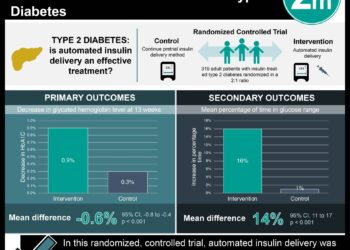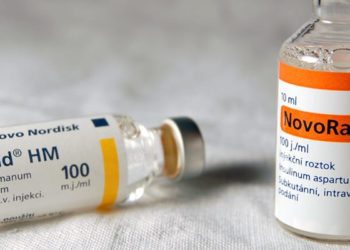Nonnutritive sweeteners elicit more neural response to food cues compared to sugar
1. In this study, nonnutritive sweeteners (NNS) resulted in higher circulating levels of glucose, insulin, and glucagon-like peptide 1 (GLP-1) compared to nutritive sugars (NS).
2. Obesity and female gender were associated with greater neural response to food cues after consuming NNSs compared to NSs.
Evidence Rating Level: 1 (Excellent)
Nonnutritive sweeteners (NNSs) are a common ingredient in low-caloric food and beverages. However, how NNSs impact appetite, neural responses to high-calorie food cues, and metabolic responses compared to nutritive sugar (NS) remains understudied.
This randomized cross-over trial examined brain activity, metabolic responses, and eating behaviors after consumption of NNS compared to NS amongst 74 healthy young adults across a wide range of body mass indices (BMIs) at the Dornsife Cognitive Neuroimaging Center of University of Soutern California. Participants fasted for 12 hours prior to consuming drinks containing either NNS, NS, or water, randomized for each of three visits. Blood was sampled pre- and post- consumption to measure metabolic outcomes. Participants also underwent functional magnetic resonance imaging (fMRI) testing approximately 20 minutes after ingestion of the drink and were allowed to eat ad libitum 125 minutes after the drink. Participants with a history of eating disorder, diabetes, or other medical conditions were excluded. Primary outcomes of interest were effect of BMI and sex on metabolic and neural responses to high-calorie food cues following NNS vs NS consumption.
Compared to NS, NNS consumption resulted in higher circulating glucose, insulin, and GLP-1 levels. Individuals with obesity (but not overweight or health-weight individuals) exhibited greater neural responses to food images in reward-related regions of the brain after ingesting NNS compared to NS. In addition, female participants responded with increased neural food-cue reactivity after NNS consumption compared to male participants. This study was limited in having just a one time, one-dose exposure to NNS vs NS, considering consumption of NNS is usually more prolonged and sustained. Nonetheless, this study was significant in suggesting certain biological factors may influence the effects of NNS.
Click to read the study in JAMA Network Open
Image: PD
©2021 2 Minute Medicine, Inc. All rights reserved. No works may be reproduced without expressed written consent from 2 Minute Medicine, Inc. Inquire about licensing here. No article should be construed as medical advice and is not intended as such by the authors or by 2 Minute Medicine, Inc.







